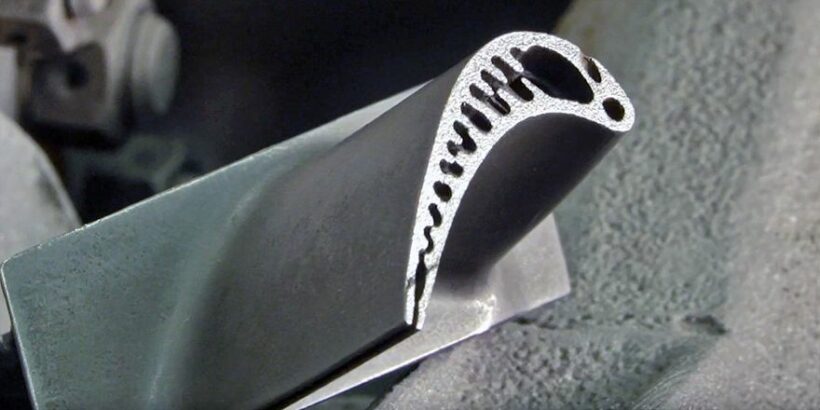The durability of modern gas turbine engines depends to a large extent on the reliability of turbine blades, since they are the most stressed parts. The blades are made of heat-resistant nickel alloy. Under the influence of dynamic loads and work in aggressive environment, microcracks are formed on the surface of the blades, containing oxide films of different metals. To repair spent blades it is necessary to clean microcracks and hard-to-reach areas of nozzle blade surfaces from metal oxides.
Perm Polytechnic University analyzed all the available methods of cleaning the parts from the hard-to-remove components – aluminum, titanium and chrome oxides – and found more effective cleaning methods that will be useful for the developed technology of gas-turbine engine blades repair.
The currently existing methods to remove metal oxides from microcracks were researched and analyzed. The oxide film was removed by chemical cleaning with solutions of different compositions at different conditions, ultrasonic cleaning in baths, in an autoclave and sequential cleaning with hydrogen fluoride and hydrogen at high temperatures in a reactor. The average cleaning temperature ranges from 120 to 1000 degrees Celsius. The cleaning duration is 1-1.5 hours.
“Analysis has shown that the method using hydrogen fluoride and hydrogen at elevated temperatures has shown itself best for cleaning gas turbine engine blades from the oxide film. This method allows cleaning due to the chemical activity of hydrogen fluoride, which reacts with alloy components to form soluble metal fluorides,” said Darya Loginova, a master’s student in the Chemical Technologies Department.
The research, conducted by specialists from Perm Polytechnic University, will reduce the duration of work on overhauled gas turbine engine blades, and the cleaning method itself will increase the service life of the cleaned turbine blades, reduce the number of rejects during their repair and expand the technological capabilities of the production, the university explained.
Now in Russia there is no suitable and realizable method for cleaning the surface and microcracks of gas turbine engine blades, so this issue is quite relevant for machine-building companies. The engine-building company ODK-Perm Motors is interested in the Polytechnics’ research, the Polytechnic representative explained.


